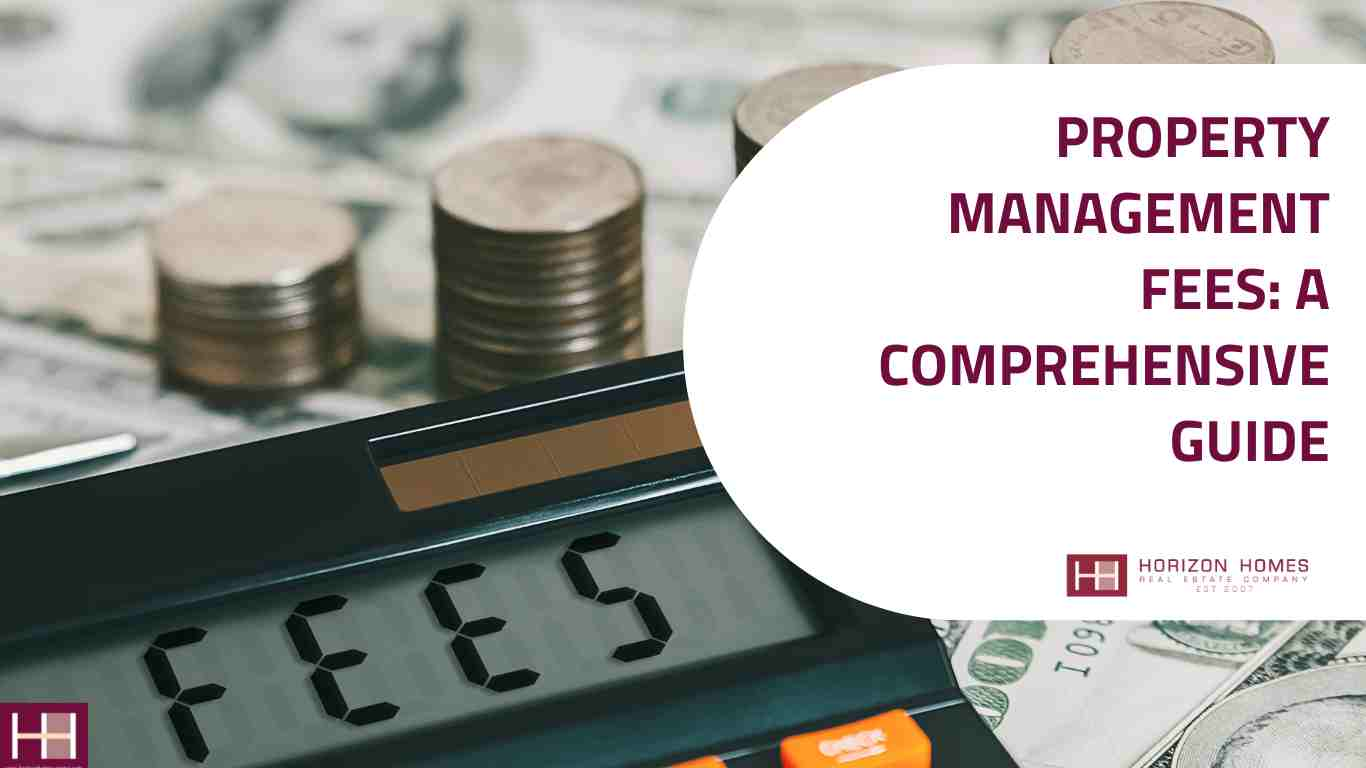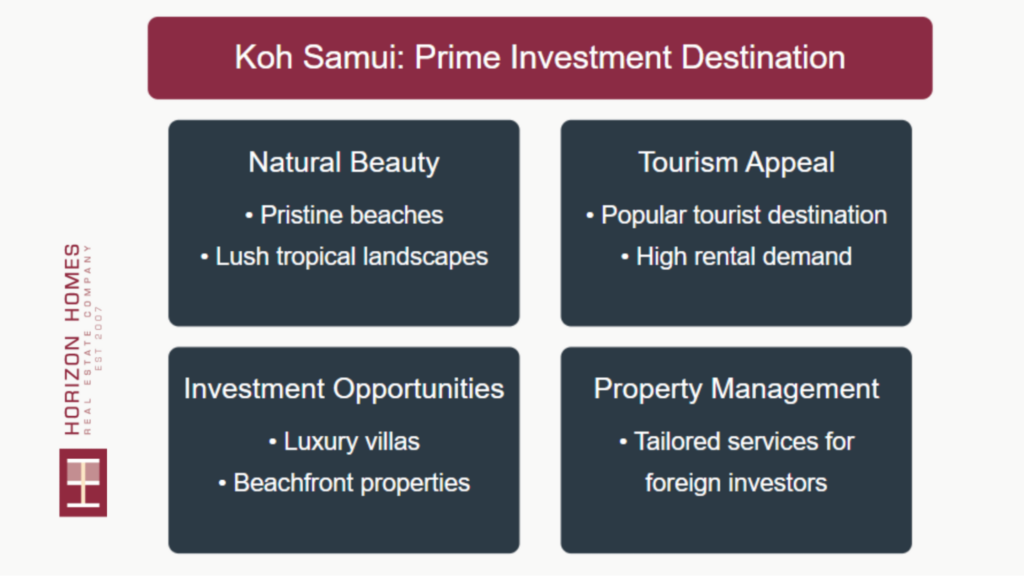Navigating the world of property management can be complex, especially when it comes to understanding the associated fees. This comprehensive guide breaks down common property management fees, what they cover, and how they can impact your investment. Whether you’re a seasoned investor or a new property owner, this article will help you make informed decisions.
What Are Property Management Fees?

Property management fees are the charges levied by property management companies for their services in managing rental properties. These fees cover a range of services, from tenant placement to maintenance and rent collection. Understanding these fees is crucial for managing your investment’s profitability.
1. Management Fee
The management fee is the most common and typically a percentage of the monthly rental income, usually ranging from 10% to 20% in Thailand. This fee covers the general day-to-day management of the property, including rent collection, handling tenant issues, and routine maintenance coordination.
2. Tenant Placement
Also known as a leasing fee, this one-time charge is for finding and placing a new tenant. It usually amounts to one month’s rent or a fixed percentage of the annual rent. This fee covers advertising, showing the property, screening tenants, and preparing lease agreements.
3. Maintenance
These fees cover the cost of regular maintenance and repairs. While some property management companies include basic maintenance in their management fee, others charge separately for any work performed. It’s important to understand what’s included and what’s extra.
4. Lease Renewal
A lease renewal fee is charged for renewing a tenant’s lease. This fee can be a flat rate or a percentage of the monthly rent and covers the administrative work involved in negotiating and preparing the new lease agreement.
5. Vacancy
Some property management companies charge a fee when the property is vacant. This fee incentivizes the management company to fill vacancies quickly and can be a flat rate or a reduced management fee.
6. Inspection
Regular property inspections ensure that the property is being well-maintained and that tenants are complying with lease terms. Inspection fees cover the cost of these periodic checks and can be billed annually or semi-annually.
Detailed Breakdown of Services Covered

- Rent Collection and Financial Management: Property management companies handle all aspects of rent collection, including setting up direct deposits, tracking payments, and handling late payments. This service ensures timely income and reduces the hassle of dealing with delinquent tenants.
- Maintenance and Repairs: Regular maintenance and prompt repairs are crucial for keeping the property in good condition and retaining tenants. Management companies coordinate with trusted vendors and contractors to address issues ranging from plumbing and electrical problems to landscaping and general upkeep.
- Tenant Screening and Placement: Effective tenant screening is vital for ensuring reliable and responsible tenants. Property management companies conduct background checks, credit checks, and reference checks to minimize the risk of problematic tenants.
- Lease Management: Property management companies handle all aspects of lease management, from drafting and enforcing lease agreements to managing renewals and terminations. This service ensures that all legal requirements are met and that both the property owner and tenant are protected.
- Legal Compliance: Staying compliant with local, state, and federal laws is essential for avoiding legal issues. Companies stay updated on legal changes and ensure that your property complies with all relevant regulations.
How Property Management Fees Impact Your Investment
- Cost-Benefit Analysis: While property management fees may seem like an added expense, they often save property owners time and money in the long run. By ensuring professional management, timely maintenance, and effective tenant screening, these fees can enhance the property’s value and rental income.
- Budgeting for Fees: When budgeting for property management, it’s essential to account for all potential fees. This comprehensive approach helps you understand the true cost of owning and managing rental properties, allowing for better financial planning and decision-making.
What Makes Property Management in Thailand a Growing Market?
Thailand, known for its robust tourism industry and attractive real estate market, offers unique opportunities for property investors. The Thai property market is especially appealing due to its favorable regulations for foreign investors and the increasing demand for vacation rentals.
Why is Koh Samui a Prime Destination for Property Investment?
- Koh Samui, is a top choice for luxury property investments. With its pristine beaches, lush tropical landscapes, and vibrant local culture, Koh Samui attracts both tourists and long-term residents. The demand for rental properties is high, making it an excellent location for property investment.
- Property management typically includes comprehensive services tailored to the needs of foreign investors. From managing short-term vacation rentals to maintaining luxury villas, property management companies in Koh Samui offer a range of services designed to maximize your investment’s profitability.
Tips for Selecting a Property Management Company
-
Research and Reviews
- Look for property management companies with strong reputations and positive reviews
- Check references
- Speak with other property owners to gauge their satisfaction with the company’s services
-
Transparent Fee Structure
- Choose a property management company that offers a clear and transparent fee structure
- Ensure you understand all fees and services provided to avoid any unexpected charges
-
Customized Services
- Select a property management company that tailors its services to meet your specific needs.
- Whether you need full-service management or only specific services, a customized approach ensures you get the best value.
FAQ
What is a typical property management fee?
Property management fees typically range from 10% to 20% of the monthly rental income. However, this can vary depending on the location, type of property, and services provided.
Are property management fees negotiable?
Yes, many property management companies are willing to negotiate their fees, especially if you have multiple properties or long-term agreements.
What services are included in the management fee?
The management fee generally covers rent collection, handling tenant issues, and routine maintenance coordination. Always check with your property management company to understand what is specifically included.
Is a tenant placement fee always required?
Most property management companies charge a tenant placement fee, which covers the cost of advertising, screening tenants, and preparing lease agreements. This fee is usually a one-time charge when a new tenant is found.
How often are property inspections conducted?
Property inspections are typically conducted annually or semi-annually, but the frequency can vary based on the management company and the property owner’s preferences.
Can property management fees be deducted from taxes?
Yes, property management fees are generally considered a deductible expense for tax purposes. Consult with a tax professional to understand how these deductions apply to your specific situation.
Look for a clear outline of fees, services provided, contract duration, and termination clauses. Ensure all aspects of the agreement are transparent and understood before signing.
Remember, understanding property management fees is crucial for maximizing your rental property’s profitability and ensuring efficient management. Whether you’re a seasoned investor or a new property owner, familiarizing yourself with common fees and what they cover will help you make informed decisions. With the right approach, you can select a property management company that best meets your needs and enhances the value of your investment.



